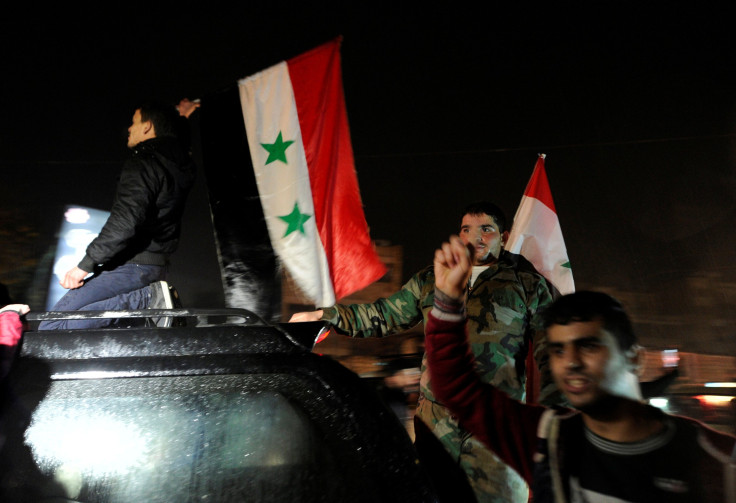What's Happening In Syria? After Fierce Bombing In Aleppo, Russia And Assad Forces Reach Deal With Rebels

The battle for Aleppo ended Tuesday with the Syrian military and its allies regaining full control of the city and remaining opposition forces retreating from its last rebel-held sections.
Russia, a supporter of Syrian President Bashar Assad in the five-year-long civil war that has wreaked havoc on the nation, announced that all military action had ended against what was the opposition's last major urban stronghold in Syria and that a ceasefire had been reached. While both sides of the conflict have confirmed the ceasefire, the final details of the agreement are still being worked out. The Syrian government has said civilians would be permitted to evacuate and that armed rebels can withdraw.
The Syrian military's steady advance against opposition forces in Aleppo, Syria's largest city and commercial capital prior to the war, was met with mixed reactions by Syrians in the city. As celebrations took place in West Aleppo, residents of East Aleppo feared for their lives as near-constant airstrikes targeted crowded, shrinking positions occupied by both militants and civilians alike. Conflicting reports of alleged mass executions committed by pro-government forces and the use of civilians as human shields by rebels also weakened prospects of stability in the war-torn city.
The victory represents both a symbolic and tactical turnaround from the government's position prior to last year's Russian intervention. Since massive anti-corruption protests in 2011 devolved into armed opposition against the government, Assad had steadily lost territory to a broad network of rebel groups that included jihadist groups such as the Al Qaeda-linked Nusra Front, now called Jabhet Al Sham and active in the battle for Aleppo, and the Islamic State militant group, whose recent advances in the strategic ancient city of Palmyra were overshadowed by the government's major operation to re-establish control over Syria's second city.
Over five and half years later, the death toll remains unclear with some sources putting the number well above 400,000 and the displacement of millions more both internally and abroad as refugees around the world. Following the rebels' defeat, some civilians returned to their homes - or what was left of them - others would take the opportunity to finally escape the city, long sieged by the conflict.
"The crushing of Aleppo, the immeasurably terrifying toll on its people, the bloodshed, the wanton slaughter of men, women and children, the destruction – and we are nowhere near the end of this cruel conflict," U.N. High Commissioner for Human Rights Zeid Ra'ad al-Hussein said Tuesday in a statement referring to the difficult road ahead for Syria as rebels were expected to regroup in their next stronghold of Idlib.
© Copyright IBTimes 2025. All rights reserved.






















